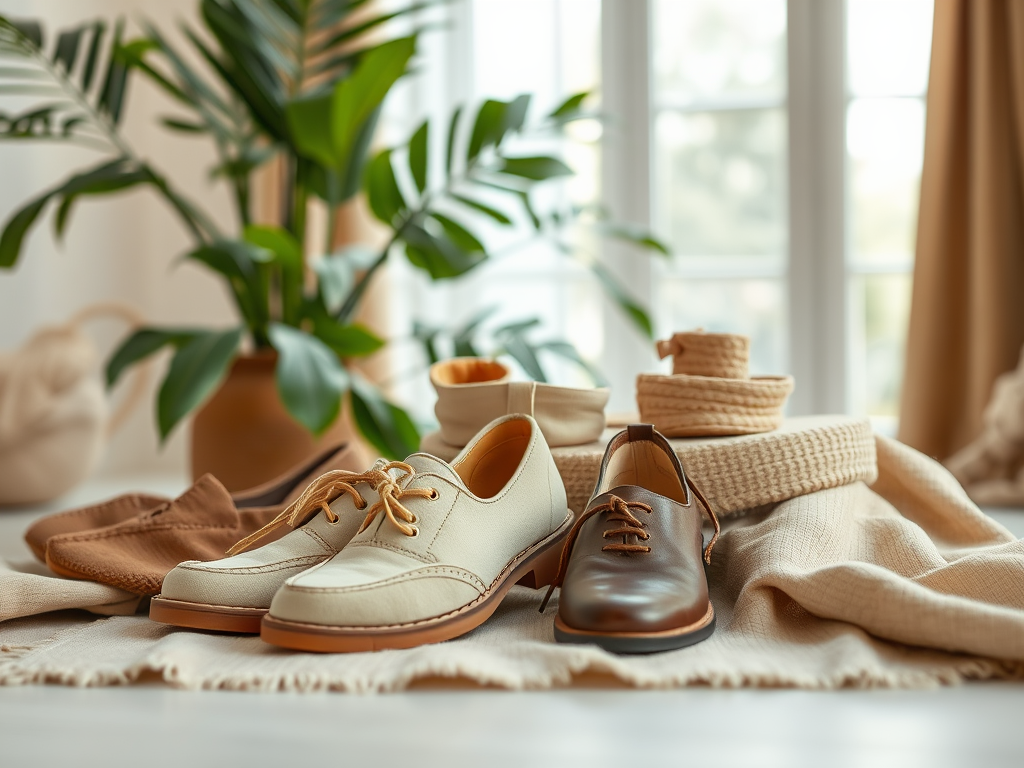In a world increasingly concerned with sustainability and ethical consumption, the footwear industry finds itself at a crossroads. Ethical women’s shoes are gaining traction among conscientious consumers who value both style and ethics. Understanding the reality behind ethical footwear is essential, particularly as myths continue to obscure the true benefits of these brands. The urgency for change in the fashion industry elevates the importance of making informed decisions. By debunking common misconceptions, we empower consumers to embrace ethical choices without hesitation. Let us explore the truths about ethical women’s shoes that every savvy shopper should know.
What Are Ethical Women’s Shoes?

Ethical women’s shoes are defined by their commitment to sustainable practices, fairness in labor, and a conscious approach to environmental impact. These shoes are crafted using eco-friendly materials that reflect a dedication to ethical manufacturing processes. With an increasing number of brands prioritizing transparency, consumers can feel good about their purchases. Often, ethical footwear options include organic fabrics, recycled materials, and innovative synthetic alternatives that don’t compromise on quality. Ultimately, ethical shoes provide a unique opportunity to blend sustainability with fashion. This concept aligns perfectly with the needs of today’s eco-conscious consumers.
Common Myths About Ethical Women’s Shoes

The landscape of ethical women’s footwear is riddled with misunderstandings that can deter consumers from making responsible choices. By dispelling these myths, we can pave the way for a more sustainable future.
Myth: Ethical Shoes Are Always Expensive
A widespread belief suggests that ethical shoes come at a significant premium, deterring potential buyers who might assume they cannot afford such investments. However, an array of price points exists within the ethical footwear market, making it accessible to various budgets. Many brands emphasize quality craftsmanship and longevity, transforming the initial investment into a cost-effective choice over time. Importantly, consumers should view ethical purchases as investments, not merely transactions. By opting for durable ethical shoes, individuals can save in the long run through reduced replacements. Therefore, the myth of high costs may hold some truth, but it is far from the complete picture.
Myth: Ethical Shoes Lack Style
There’s a common perception that choosing ethical footwear means sacrificing style in favor of sustainability. On the contrary, a plethora of brands are dedicated to creating fashionable options that cater to diverse tastes. From chic flats to stylish boots, ethical shoes can satisfy fashion-forward individuals without compromising their values. Innovative designs and collaborations further enhance the visual appeal of ethical offerings, demonstrating that sustainability can be synonymous with trendy aesthetics. More so, the fashion industry continues to embrace the ethos of style coupled with responsibility. Customers can explore a vibrant array of ethical footwear options that prove style and sustainability coexist harmoniously.
| Myth | Truth |
|---|---|
| Ethical shoes are always expensive. | Many affordable options exist. |
| Ethical shoes lack styles. | Numerous fashionable options are available. |
| All ethical shoes are made from natural materials. | Innovative synthetics can also be ethical. |
| Buying ethical shoes doesn’t make a difference. | Consumer choices influence brands positively. |
Myth: All Ethical Shoes Are Made from Natural Materials
A notion persists that genuine ethical footwear must only utilize natural materials, leading consumers to overlook innovative alternatives. While many ethical brands embrace organic cotton or hemp, several successfully incorporate man-made materials with reduced environmental impacts. Companies are increasingly harnessing technology to produce sustainable synthetics, balancing style with eco-consciousness. Hence, the rigid view delineating natural from synthetic can obscure a broader understanding of ethical production.
How to Identify Ethical Women’s Shoe Brands
Navigating the ethical footwear landscape can be daunting without proper knowledge. To successfully identify reputable brands, consumers should keep a few essential tips in mind. Here are some criteria to look for:
- Transparency in manufacturing practices and sourcing materials.
- Certifications like Fair Trade or B Corporation.
- Membership in organizations like the Ethical Fashion Forum.
By focusing on these indicators, shoppers can make informed decisions that align with their values. With the growth of ethical shopping, the power to choose sustainable continues to lie in the hands of the consumers.
Conclusion
Understanding and debunking myths about ethical women’s shoes is pivotal in cultivating informed choices among consumers. By recognizing the truths that challenge these misconceptions, consumers can confidently invest in footwear that resonates with their values. Ethical shoes represent more than just a fashion statement; they embody a commitment to sustainable practices, fair labor, and a better world. As demand for ethical products continues to rise, the onus is on consumers to drive change through conscious purchasing. Ultimately, ethical footwear is an opportunity to be both stylish and responsible, making it an essential consideration for today’s consumers.
Frequently Asked Questions
- What makes a shoe ethical? Ethical shoes are produced in environmentally friendly and socially responsible ways, often involving fair labor practices and sustainable materials.
- How can I find affordable ethical women’s shoes? Look for brands that prioritize accessibility, keep an eye out for sales, and consider signing up for newsletters for exclusive discounts.
- Are there ethical brands that focus on style? Yes, many ethical brands produce stylish designs that cater to various preferences and fashion trends without compromising their ethical standards.
- Do ethical shoes last longer than traditional shoes? Many ethical shoes are designed with durability in mind, often leading to longer wear than conventional footwear made with cheaper materials.
- Is it possible to shop ethically on a budget? Absolutely! Searching for sales, considering second-hand options, and supporting smaller brands can help you find ethical shoes that fit your budget.